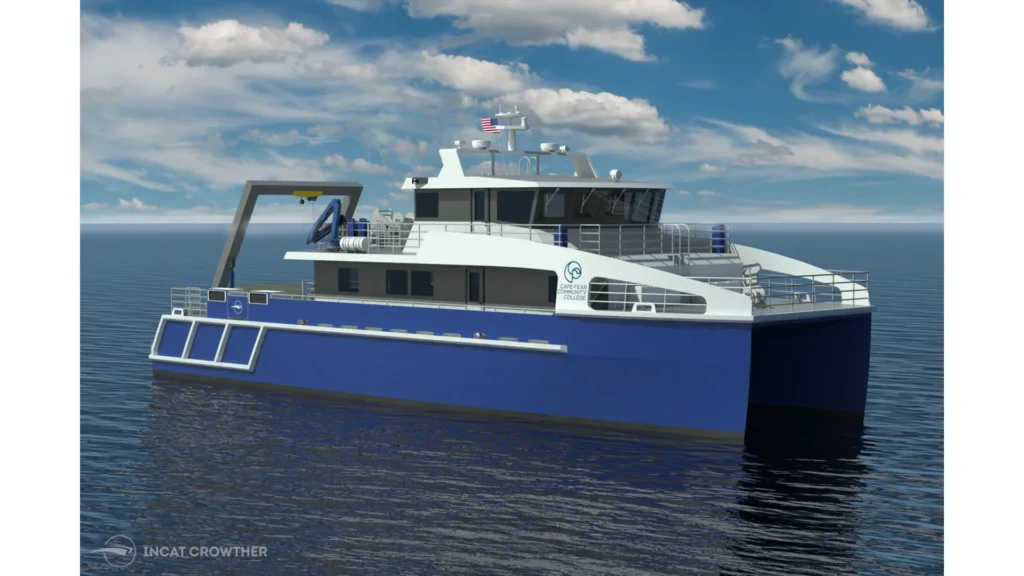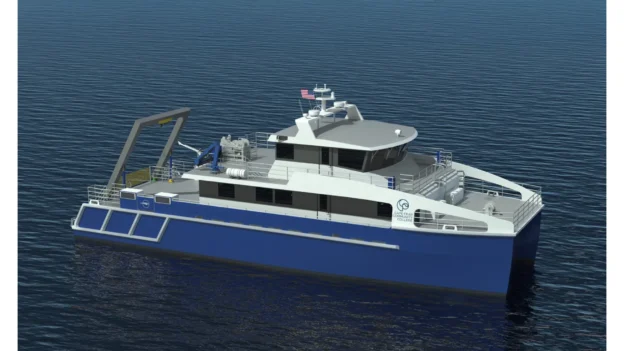Cape Fear Community College (CFCC), located in Wilmington, North Carolina, has initiated construction of a research vessel that promises to transform the learning experience for its marine technology students.
Educational and industrial collaboration
This ambitious project is the result of a close collaboration between Incat Crowther a naval architecture firm specializing in custom vessels, who designed the vessel, and Midship Marine, a shipbuilder with experience in institutional vessels located in Louisiana.
At Incat Crowther we are excited to be working on this project […] We have a strong track record of designing bespoke and award-winning research vessels in North America, and our team of naval architects have been working closely with the CCFC team to ensure that this vessel is optimized for their operations and the local environment.
Grant Pecoraro, CEO of Incat Crowther.
Research vessel capabilities and equipment
The boat is designed as a floating laboratory with a robust aluminum structure, which has versatile features such as:
- A heavy duty “A” type crane, capable of lifting up to 3,629 kg of scientific equipment.
- Telescopic davit and heavy-duty winches on main and upper decks.
- Stern platform at water level to facilitate access to the water for divers and researchers.
- Dry and wet laboratories, kitchen, dining room and multiple bunks distributed on two decks.
The vessel will have the capability to operate both in the Cape Fear river system and up to 100 nautical miles offshore, ideal for multi-day research and academic missions.

Why is a vessel like this important?
This ship will function as a floating classroom and laboratory and is part of CFCC’s strategy to train highly skilled professionals, capable of adapting to a maritime industry constantly evolving maritime industry. Among the benefits it will offer are:
- Practical training in a real environment.
- Experience and preparation for today’s challenges.
- Strengthening and commitment to marine education.
Towards 2026
The CFCC research vessel will be ready to set sail in 2026 and its entry into operation will mark the beginning of modern, marine-oriented technical training for many students.
Source and Photo: Incat Crowther.

